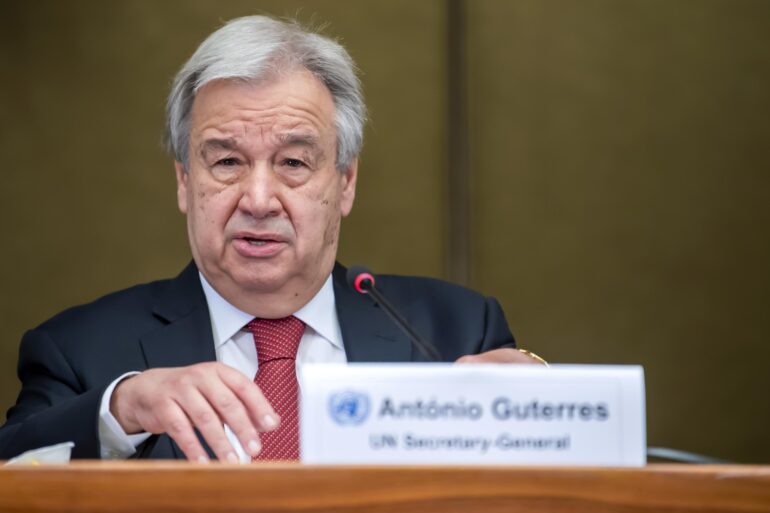TL;DR:
- UN Chief Antonio Guterres proposes a “global digital compact” to manage the risks and benefits of digital technologies.
- Concerns over the weaponization of AI have led to a plea for action on governance.
- National and regional approaches are insufficient in a globalized world.
- The compact aims to align national, regional, and industry efforts around global priorities and principles.
- Guterres suggests establishing a multi-stakeholder expert body to review AI governance arrangements and ensure alignment with human rights and the rule of law.
Main AI News:
In a bold move aimed at safeguarding the world from the perils of digital technologies, the United Nations Secretary-General, Antonio Guterres, has urged governments to forge a “global digital compact.” This groundbreaking initiative aims to mitigate the risks associated with artificial intelligence (AI) while harnessing its potential for the betterment of humanity.
Guterres expressed grave concerns about the weaponization of AI, emphasizing that even the technology’s pioneers are alarmed and fervently calling for regulatory action. Highlighting the urgency of the situation, he asserted that national and regional approaches are woefully inadequate in the face of a globalized world.
The proposed global digital compact seeks to establish a comprehensive framework that aligns national, regional, and industry efforts around shared global priorities, principles, and objectives. By doing so, it aims to foster unity and collaboration in governing AI technologies.
To facilitate the effective implementation of this compact, Guterres suggested the creation of a multi-stakeholder expert body dedicated to artificial intelligence. This specialized group would critically evaluate existing AI governance arrangements and provide invaluable recommendations on how they can be harmonized with human rights, the rule of law, and the common good.
The envisioned expert body would play a pivotal role in shaping the future of AI governance, ensuring that it remains aligned with ethical standards and inclusive of diverse perspectives. By offering expert guidance, this global initiative aims to strike a delicate balance between reaping the benefits of AI advancements and safeguarding humanity from potential risks.
The proposal put forth by the UN chief serves as a rallying cry for all nations, industries, and stakeholders to unite in addressing the complex challenges posed by AI. Through collective action and cooperation, the global community can pave the way for responsible and sustainable AI development that serves the best interests of humanity as a whole.
Conclusion:
The UN Chief’s proposal for a “global digital compact” demonstrates a heightened recognition of the challenges posed by artificial intelligence. This initiative has far-reaching implications for the market, signaling a growing need for comprehensive regulations and cooperation among nations and industries. Businesses operating in the AI sector should anticipate potential changes in governance frameworks and position themselves to comply with evolving standards that prioritize human rights, the rule of law, and the common good. Adapting to this emerging landscape will be crucial for long-term success and maintaining public trust in AI technologies.

